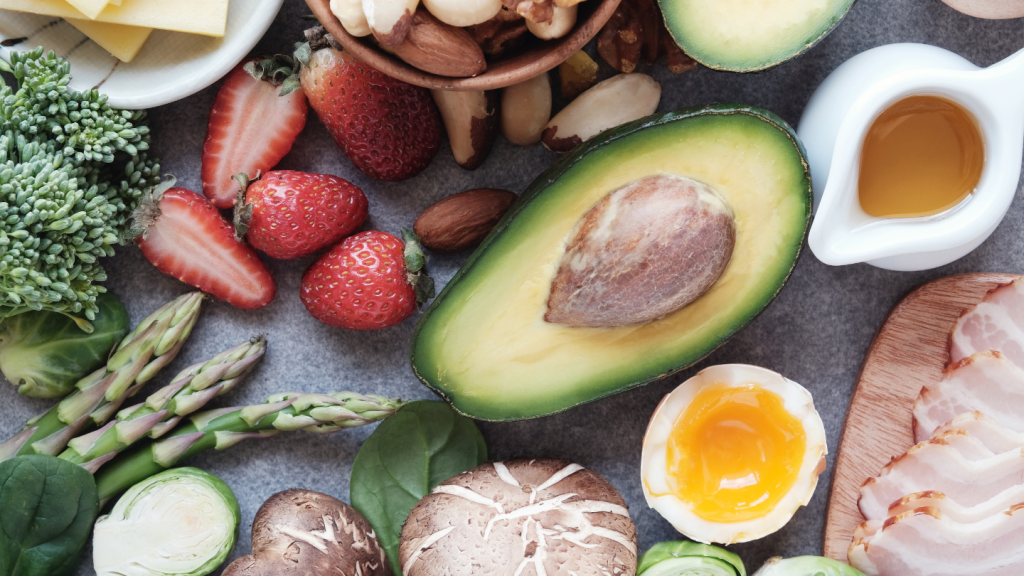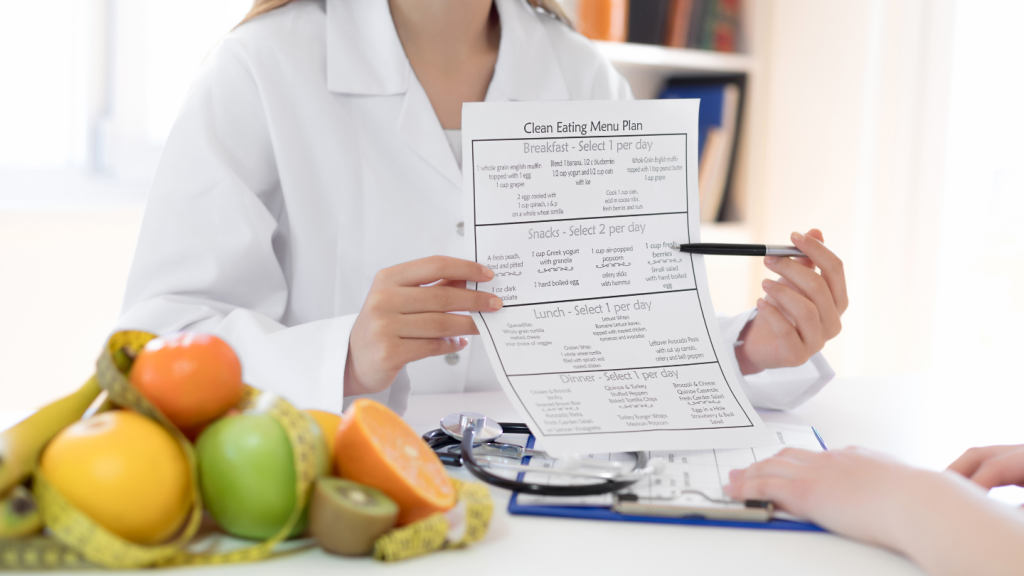
What To Eat After Hernia Surgery?
Recovering from hernia repair is not just about rest and medical care; diet plays a central role in how quickly and comfortably your body heals. Many patients wonder what to eat after hernia surgery, especially during the critical first few weeks when digestion is sensitive and energy demands are high. Making informed food choices can prevent complications such as constipation, bloating, or strain on the surgical site. This guide outlines the timeline, nutritional needs, and specific foods that support a smoother recovery.
Why Diet Matters After Hernia Repair
A post-hernia surgery diet is more than just a list of approved meals. After hernia repair, especially with mesh placement, the digestive system may respond differently to food. Gas, constipation, and slower bowel function are common. Choosing the right foods reduces pressure on the abdominal wall and speeds up healing. Understanding what to eat after hernia surgeryis vital for avoiding discomfort, minimizing strain, and supporting tissue repair.
The First 24–48 Hours: Clear Liquid Diet
Doctors often recommend aliquid diet after hernia surgery, which allows the body to adjust. During this period, digestion is still sluggish, and solids may cause unnecessary strain.
- Best options: water, clear broths, diluted fruit juices, herbal teas, and electrolyte drinks.
- Avoid: carbonated beverages, caffeine, and alcohol as they can irritate digestion.
This stage is also critical for hydration. Even if appetite is low, sipping fluids steadily supports circulation, helps prevent constipation, and prepares the body to transition to soft foods. Understanding how long the recovery time is after hernia repair surgery is essential to maintain hydration and reduce stress on the digestive system.
Week 1–3: Transition to a Soft Diet

By the end of the first couple of days, many patients can shift from liquids to soft, easy-to-digest meals. Soft foods reduce digestive workload and deliver the energy needed for recovery. It is equally helpful to review walking after hernia surgery, as gentle movement supports digestion and accelerates healing during this phase.
Recommended food to eat after hernia surgery at this stage includes:
- Mashed potatoes, applesauce, and oatmeal.
- Scrambled eggs and plain yogurt for protein.
- Steamed or pureed vegetables for vitamins.
- Smooth nut butters in moderation.
At this stage, portion control matters. Eating smaller meals more often keeps digestion smooth and avoids excess abdominal pressure. Patients often ask about eating after hernia surgeryand whether discomfort is normal; mild bloating is common, but persistent pain should be reported to a physician.
Week 4 and Beyond: Reintroduction of Solid Foods
Once healing is underway, patients can slowly expand their diet to include lean proteins, fiber-rich carbohydrates, and healthy fats. Recognizing how a hiatal hernia feels can guide decisions on introducing high-fiber foods without causing discomfort. Examples include:
- Grilled chicken, turkey, or fish.
- Whole grains like brown rice or quinoa.
- Fresh fruits and lightly cooked vegetables.
- Olive oil, avocado, and nuts for healthy fats.
Gradually reintroducing solids ensures that the digestive system adjusts without shock. Following a structured diet after hernia surgery helps prevent straining during bowel movements, which is one of the most common causes of post-operative discomfort.
Foods to Avoid After Hernia Surgery
While focusing on foods to eat after hernia surgery, it’s equally important to know what to avoid. Certain foods can trigger digestive issues or slow healing:
- Spicy and fried foods: increase irritation and bloating.
- Processed foods: often high in salt and fat, which promote water retention.
- Carbonated drinks: cause gas and abdominal pressure.
- Dairy overload: heavy cream and cheeses may worsen constipation.
A smart diet for hernia patients after surgery means not only choosing nutrient-dense options but also steering clear of foods that disrupt digestion. Those who plan to exercise again should consider advice on safely exercising with a hernia to prevent strain when reintroducing physical activity.
Read More: Which Exercises Prevent Hiatal Hernias?
Nutritional Boosters for Faster Healing

The body’s repair process relies heavily on specific nutrients. Incorporating these into your food after hernia surgery can enhance healing:
- Protein: Essential for muscle and tissue repair. Sources: lean meats, eggs, Greek yogurt, and lentils.
- Vitamin C: Supports wound healing and immunity. Sources: oranges, strawberries, bell peppers.
- Zinc: Speeds up cell regeneration. Sources: pumpkin seeds, beans, poultry.
- Omega-3 fatty acids: Reduce inflammation. Sources: salmon, chia seeds, walnuts.
A nutrient-focused post-hernia surgery diet accelerates recovery while helping patients regain energy and strength. Patients dealing with umbilical issues may also benefit from insights on umbilical hernia surgery questions to ensure their nutritional plan aligns with surgical recovery.
Hydration and Lifestyle Habits for Smooth Recovery
Hydration is just as important as food. Drinking adequate water prevents constipation and supports nutrient absorption. Patients should aim for at least 8–10 glasses per day unless otherwise directed by their doctor.
Lifestyle tips to pair with your diet after hernia surgery include:
- Gentle walking to stimulate digestion and circulation.
- Avoiding heavy lifting for several weeks.
- Eating slowly to prevent air swallowing and bloating.
Balancing nutrition with these habits ensures a well-rounded recovery strategy. For individuals with complex cases, understanding at what size a hiatal hernia requires surgery can help determine when dietary precautions need to be stricter.
How Hernia Surgery Affects Digestion
One overlooked aspect of eating after hernia surgeryis how the procedure temporarily impacts the digestive system. Hernia repair, particularly with mesh, can cause abdominal tightness, mild bloating, and changes in bowel patterns. Choosing softer foods early on and adding fiber gradually helps the intestines adapt without stress. Patients should also be cautious about overeating, as stretching the stomach too quickly may cause discomfort. Adapting sleeping positions based on how to sleep after umbilical hernia surgery supports digestion and minimizes pressure on the surgical site.
Meal Ideas for Recovery

Patients often ask what to eat after hernia mesh surgery and want specific examples of foods to eat after hernia surgery beyond general categories. Here are sample options:
- Breakfast: Oatmeal with banana slices and a spoonful of yogurt.
- Lunch: Soft scrambled eggs with mashed avocado and pureed carrots.
- Dinner: Steamed fish with mashed sweet potatoes and spinach.
- Snacks: Applesauce, smoothies, or blended soups.
These options provide protein, fiber, and hydration while staying gentle on digestion.
Read More: Comprehensive Guide to Hernia Repair with Surgical Mesh: An Overview
The Bottom Line
Knowing what to eat after hernia surgery can mean the difference between a smooth recovery and weeks of discomfort. From a liquid diet after hernia surgery in the first 48 hours to gradually reintroducing proteins, fiber, and healthy fats, each stage plays a role in supporting healing. Avoiding processed, fried, and gas-forming foods is just as crucial as choosing nutrient-dense options. For patients seeking professional guidance tailored to their needs, Ascension Saint Agnes Bariatric Surgery provides expert care and nutrition support for hernia recovery. We also offer advanced treatments including GERD reflux treatment, sleeve gastrectomy, bariatric revision surgery, robotic surgery, and gastric balloon procedures. Contact us today to schedule a consultation and start your journey toward better health and lasting recovery.
Frequently Asked Questions
Why is diet important after hernia surgery?
A proper diet reduces strain on the abdomen, prevents constipation, and promotes faster healing. Nutrient-dense foods help repair tissues and restore strength after surgery.
What should I eat in the first 48 hours after hernia surgery?
Start with clear liquids such as broths, diluted juices, herbal teas, and electrolyte drinks to stay hydrated and allow your digestive system to adjust before introducing soft foods.
When can I start eating solid foods again?
Most patients can gradually reintroduce solid foods after two to three weeks. Begin with soft meals, then add lean proteins, whole grains, and cooked vegetables as tolerated.
What foods should I avoid after hernia repair?
Stay away from spicy, fried, and processed foods, as well as carbonated drinks and heavy dairy. These can cause bloating, irritation, and added pressure on the surgical site.
Which nutrients help speed up recovery?
Protein, vitamin C, zinc, and omega-3 fatty acids are vital for tissue repair and inflammation control. Incorporate foods like fish, eggs, lentils, citrus fruits, and nuts to aid recovery.